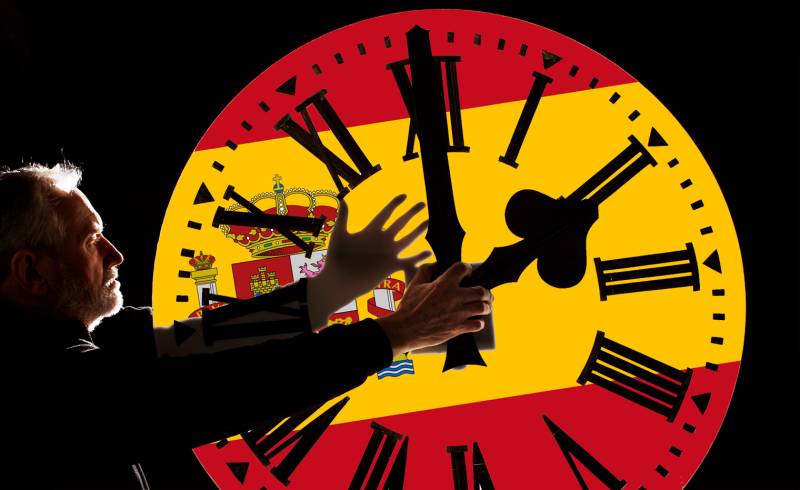Spain’s next government could reset the clocks (literally), in a move that could spell the end to the country’s reputation as a nation of late risers.
An inconclusive election in December threw the country into political deadlock, no party obtaining the 176 seats required for a majority in its lower chamber – but with a dealreached between two of its parties on Wednesday, Spain could be due a new government.
Albert Rivera – the Spanish Nick Clegg, El Español reports – has pledged the support of his party, Ciudadanos (Citizens) when the second-placed Socialists attempt to form a government under leader Pedro Sanchez early next month. His price: a reform package including, among other measures, a clock change that would drag Spain onto Greenwich Mean Time (GMT).
General Franco, centre, studies a map during the Spanish civil war in the late 1930s (Picture: STF/AFP/Getty)
In 1942 the Spanish dictator General Francisco Franco moved the country’s clocks forward an hour, in synchronicity with war ally Nazi Germany. Despite Spain being geographically in line with the UK and Portugal, this means it operates in the same time zone as countries as eastern as Poland and Hungary – places where the run rises and sets much earlier.
The result is incongruence between the ordinary Spaniard’s internal clock, as regulated by their body’s circadian rhythms – driven largely by sunlight and darkness – and the time on their watches.
In simpler terms: Spaniards are destined either to live permanently in a state of mild jet lag, waking up earlier than they really should, or they are likely to both go to bed and wake up later… which the evidence suggests that they do.
Ciudadanos economic adviser Luis Garicano told Spanish newspaper El País in November:
The biggest advantage of moving to Greenwich [mean time] is that it will be the catalyst for change – it will serve to coordinate the necessary cultural change and get things moving.
A parliamentary report recommended bringing the clocks back in 2013, to stimulate productivity, and Ciudadanos campaigned on the issue before December’s election.
The Spanish would not be the first to revolt against their timepieces.
Cumbrian pensioners, Jim and Barbara Casey decided to commit to Tenerife time after returning from their holidays abroad.
Meanwhile the idea of a 'Universal Timezone' has been floated by academics, who argue synchronising time zones would help streamline global market transactions.
Courtesy: The Independent






